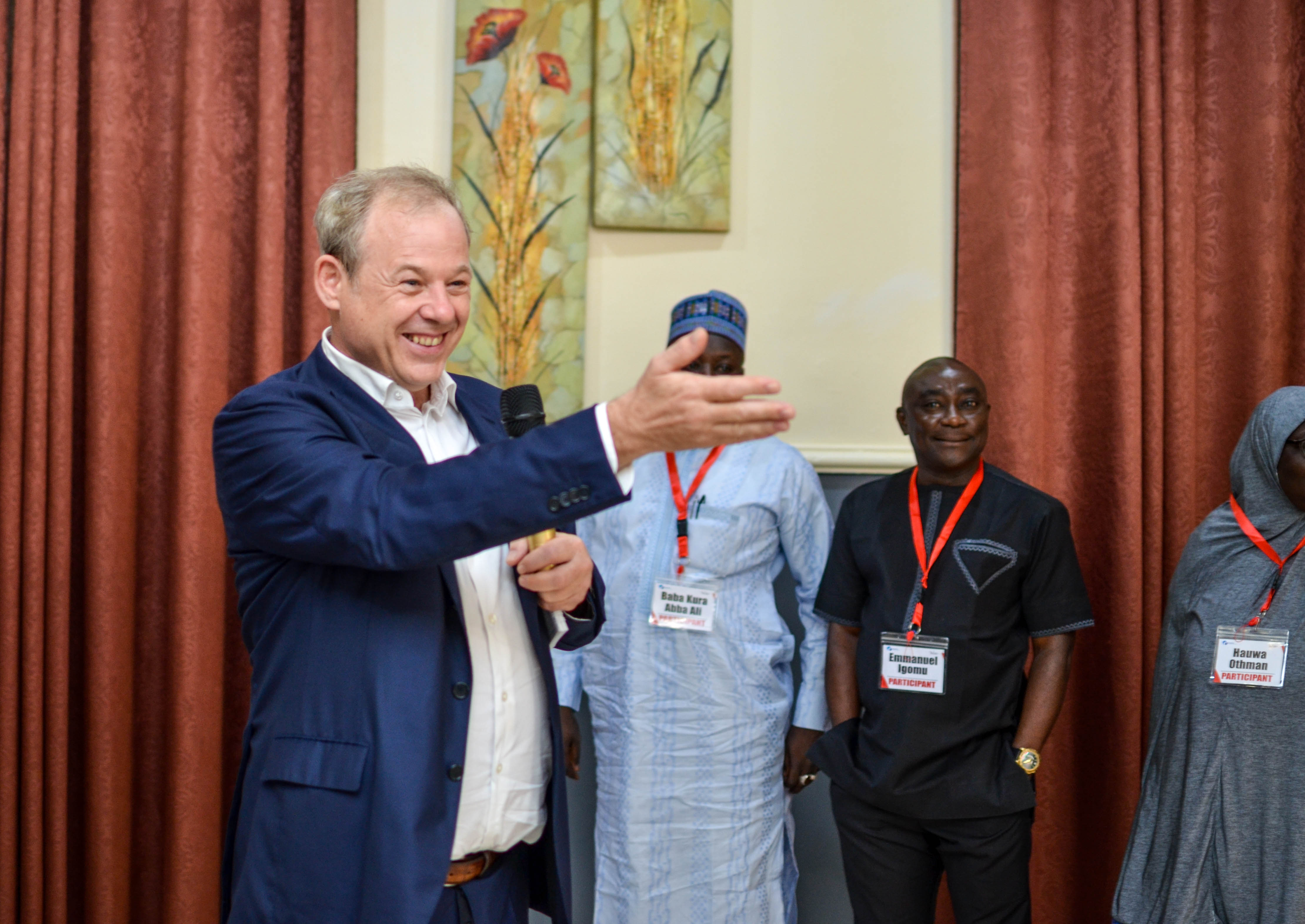News
Clingendael partners with the Center for Humanitarian Dialogue (HD) Nigeria to support community peace dialogues inside the farmer and herder conflict. Last month, we completed the fifth training in more advanced dialogue and mediation skills for liaised facilitators and staff of the HD team. Some of the key lessons learned during this last training:
Key lessons
-
Talking with hardliners. In the crucial first steps to get communication started with groups that are hard to reach, create a conversation about the other instead of about the mediation project. When start talking to people with a harsh, hostile stance, an effective strategy for mediators is to follow the pace of the other, show patience, let them be in control, but always put personal safety first.
- Analysing and building trust. In early phases of the dialogue, trust levels towards the mediator are mainly based on risk calculations made by community leaders: how much could I possibly win to start getting engaged compared to the possible losses? Later on in the process, trust is more and more linked to the people, rather than to the task they are to accomplish. This is a good development as trust reaches higher levels and becomes less fragile, but, at the same time, this type of trust becomes much more difficult to repair once it is (unconsciously) broken.
- Building personal conversations. The need to carefully analyse people’s needs (as part of the Positions – Interest – Needs model): not only to look at the more general or institutional need, but to approach this from a more personal angle (e.g. being a trustworthy professional or being able to provide a family income in the next five years). Moving from institutional to individual analysis will help to find entry points.
- What to do after agreements? The ultimate aim for mediators is to become jobless. Once an agreement is signed, the parties should take over. This does however not go overnight. It is a process that requires careful consideration of the mediator, carefully broadening and multiplying the interests of the parties in the dialogue process, getting and keeping the right stakeholders involved, and ultimately ensuring that the true constituency interests arrive at the table. Inspiration on the design of post-pact dialogue processes was discussed on the basis of experiences from Burundi, Uganda and Myanmar.
This fifth training is part of a series of training interventions that so far includes two programmes for the mediation team, two programmes for AFAN (farmer) and MACBAN (herder) leadership and one training for community leaders of nine different communities from Benue State.
Farmers and Herders Training
The series of trainings supported HD in their mission to strive for peaceful coexistence. Over the past months, we saw leaders of both farmer and herder communities become more supportive to constructively participate in HD’s dialogue initiative after having been trained in dialogue and negotiation skills. For some of the community leaders from farmer and herder groups it was for the first time ever that they interacted directly with each other. Participants to HD dialogue process in Benue State are now seeing the need to actually talk with each other to accept different versions of ‘the’ truth and to dialogue around to arrive at practical win-win solutions. As one of the participants said:
"If we would have had this training 3 or 4 years ago, we could have prevented damage and crisis."
In 2020, the Centre for Humanitarian Dialogue in Nigeria and Clingendael Academy will continue to cooperate to strengthen the dialogue initiative in Benue State and beyond.
Are you interested in the possibilities Clingendael Academy offers? Please do not hesitate to contact us. Read more about our negotiation & mediation in conflict resolution and check out our brochure with our mission, methods and training categories.


